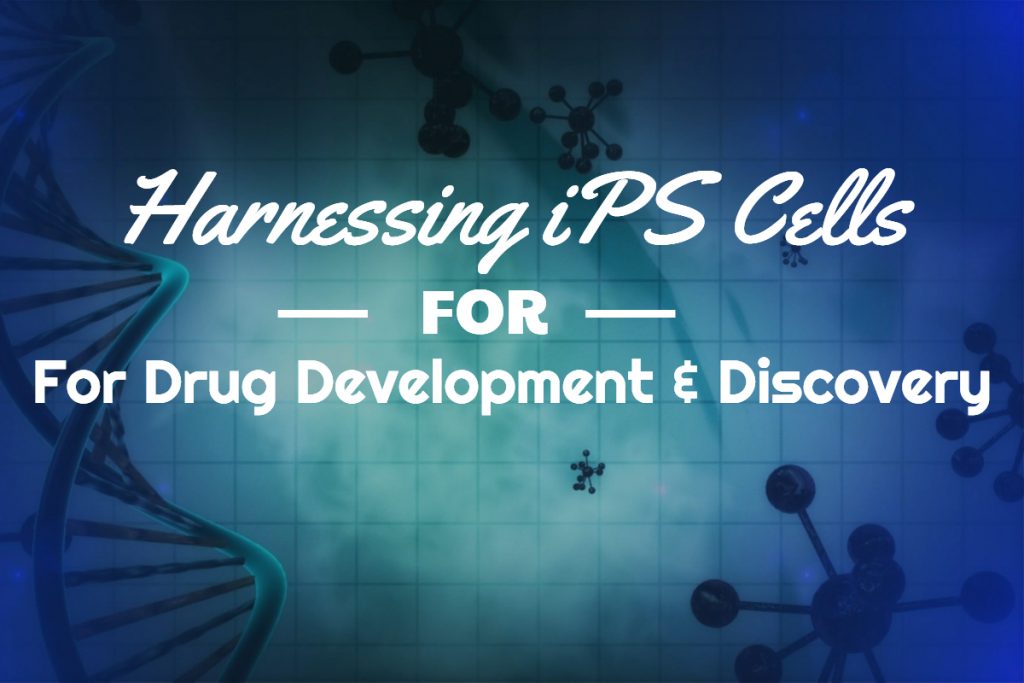Since the discovery of induced pluripotent stem cells (iPS cells) in 2006, a great deal of basic research has been done to understand how to produce, manipulate, and utilize the cell type. iPS cells are revolutionizing regenerative medicine, because they represent a potential route for producing patient-specific stem cells for research applications or clinical use. iPS cells also show great promise for phamaco-toxicological screening, by allowing disease modeling and safety assessment of potential new drugs.
iPS Cells in Drug Discovery and Disease Modeling
Additionally, iPS cells allow for the creation of patient specific cell populations, facilitating in vitro drug testing that replicates the disease conditions of the patient population of interest. This approach facilitates early determination of whether a specific genetic population will respond well to a drug candidate, a process known as “personalized medicine.”
Currently, all but one of the clinical trials underway with iPS cells involve the creation and evaluation of iPS cell lines from specific patient population to determine whether the cell lines will be a good model for a disease of interest in a specific patient population. The only exception to this is Cynata’s clinical trial underway for GvHD in the UK that involves a MSC-derived iPS cell product.
In disease modeling, the drug discovery process starts with using patient samples for the derivation of iPS cells, followed by directed differentiation of those cells into ones that have a crucial role in the disease. This approach is valuable to drug discovery, because it allows researchers to reproduce critical aspects of the disease and create a “disease in a dish” (model) for drug screening. While it is unlikely that an in vitro system would represent all characteristics of a complex disease, the ability to generate any human tissue, from any genotype or disease, provides unparalleled access to populations of disease-specific cells that has never before been available.
Disease Modelling with Induced Pluripotent Stem Cells (iPS Cells)
The diagram below shows the steps involved with iPS cell production for disease modeling. The process begins with harvesting a donor patient’s cells (usually fibroblasts). Those cells are then expanded and pluripotency induced to derive disease-specific iPS cells, called a “disease in a dish.” Next, those cells are screened against potential drug treatments, leading to identification of a treatment modality with high safety and efficacy that is specific to a particular patient or disease.
Treatments that are identified to positively impact the “disease in a dish” are then prescribed to the patient, an approach known as “personalized medicine.” In some cases, disease-specific iPS cells derived from a patient may also be characterized, expanded, and stored in a biobank.
iPS Cells as Tools for Drug Development
Clearly, iPS cells are opening up new paths to drug development and discovery, as exemplified by the diverse range of clinical trials that are producing iPS cells from various disease states. iPS cells are also being purchased in growing quantities by pharma companies across the globe, with companies like Cellular Dynamics International (world’s largest provider of iPS cell products) and Axiogenesis (world’s second largest provider of iPS cell products) providing an expanding range of tools to the pharmaceutical sector.
To learn more about emerging iPS cell applications, attend an upcoming iForum℠ meeting hosted by CDI. It is a unique opportunity to connect with thought leaders from academia, biotech, and pharma to discover new applications and innovative uses for differentiated iPS cells. Meetings are being hosted in Boston (Sept 21, 2017), Novato (Sept 14, 2017), and London (Sept 28, 2017) .
